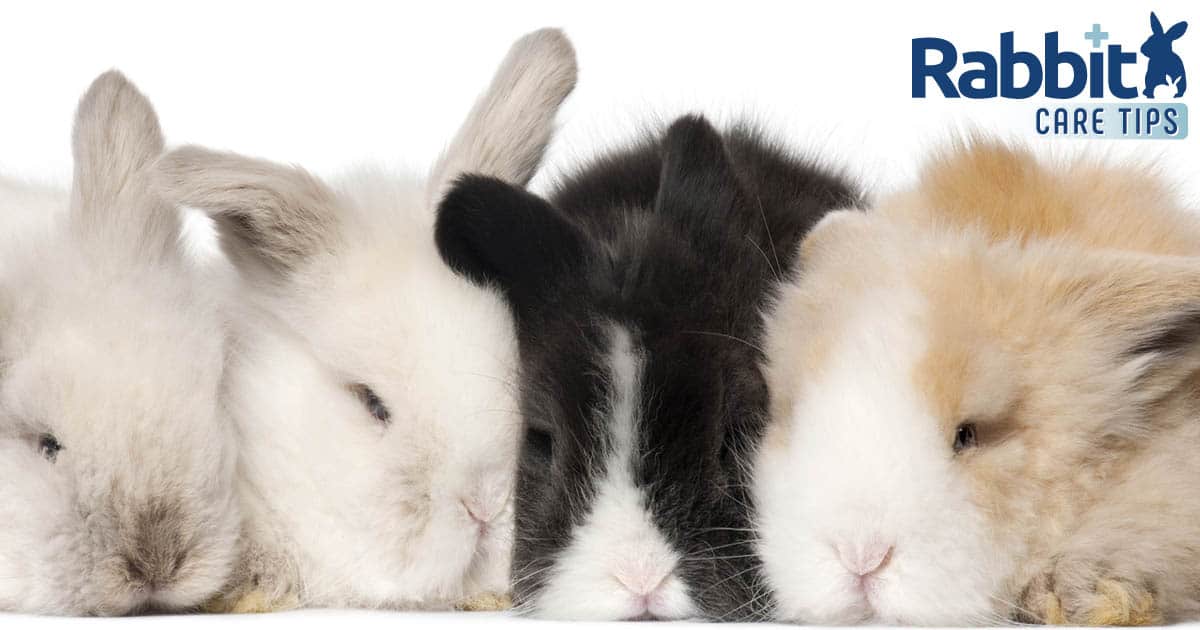Is your pet getting enough sleep? If you suspect that they are not, then read on to find out how you can help.
You can ensure your pet rabbit gets all the rest it needs by maintaining a routine and by making sure that its bedding is robust and comfortable and that its surroundings feel secure.
Be aware, however, that rabbits can sleep with their eyes open, so they may appear to be awake when they are actually taking a well-earned rest. If your pet does seem to have sleep issues, consider the advice below to assess what changes you can make:
How to Help Your Rabbit Sleep
Provide Your Pet With Comfortable Bedding
Cozy bedding is vital to ensure your pet has the appropriate amount of sleep, so be sure to make this a priority.
Rabbits owners take a variety of approaches. Many have reported that their rabbit will maneuver any bedding out of the way to sleep on a dry part of their cage, while many have also confirmed that comfortable bedding appeared to be essential for their pet.
What is clear is that all rabbits have their own preferences and personalities, so it might be necessary to trial a number of bedding types to find out which one suits your particular pet. For example, my last rabbits – kept in a garden hutch – took a liking to paper pellets.
Regardless of their preference, however, you should make sure that their bedding is not too hard or dusty, as the latter can affect their respiration.
Once you have found a bedding type that your pet likes, you can be sure they will get a good night’s sleep.
Support Your Rabbit’s Sleep Routine
Over 24 hours, most rabbits will need between six and eight hours of sleep. Their body clocks rely on being most active at dawn and at dusk – known as a crepuscular cycle – and they will get all the sleep they need over this 24-hour period; it is not necessary for them to get all their sleep during the night. Indeed, they will naturally get around half of their sleep during the day.
Once you are in tune with your pet’s crepuscular cycle, you’ll notice that they often become most active after sunset and at sunrise. Consequently, if you have bought a rabbit for a young child, it may be difficult for them to make the most of their pet’s playfulness during these hours.
Ensure Your Rabbit Has Peaceful, Quiet, and Secure Surroundings
A feeling of safety is crucial for any rabbit’s sleep because they need to feel relaxed in order to rest properly. A nervous or uncertain bunny will remain alert even if they are not sure what the reason is.
Such behavior is entirely normal for any species that are prey to others. As rabbits are killed by many other mammals, their instinct will always be to remain suspicious of strange noises or movements.
Assess your rabbit’s surroundings and how they might be responding to them. There may be a range of factors causing them to feel insecure – and these may be subtle. Take steps to make adjustments where necessary, either by removing certain items or by relocating the cage to somewhere more suitable.
We should also stress that as well as secure surroundings, quiet is very important for your rabbit. A rabbit that is kept in a noisy environment is likely to feel stressed and will find it difficult to sleep.
Rabbits Indoors
If you’re keeping your pet indoors, then offering them peace and quiet within a highly charged social atmosphere can be difficult. While they may make some adjustments to match your own sleep routines, it may be worth also relocating them to a less busy area of the home where they will not be consistently exposed to noise and movement.
Despite the need for quiet, however, rabbits should be able to adjust to a standard social atmosphere and get their required midday sleep. So just make a judgment about how noisy your house actually is. Are there screaming children or stereos playing, for example?
Rabbits Outdoors
If you keep your pet in an outdoor pen, it is likely their sleep routine will be like a wild rabbit’s. It might be worth making sure they are getting some night sleep, however, as for all you know there could be other animals bothering them.
Make Sure Your Rabbit Remains Active
Regular exercise is important for any rabbit’s physical health and mental well-being. Quality exercise during the day, or at dusk, will support their sleep routine.
Typically, experts advise on four hours of daily activity for a rabbit. So a playpen or extended enclosure in which they can run around and graze as they please is a great addition.
Some rabbit owners also walk their pets and, if the area is safe and secure, this is a good way for you to interact with them. Expending energy in a positive way makes for healthy animals and owners.
Now this may sound unusual, but we have seen rabbits enjoying trampolines. It’s fun to watch, too, as long as one or two of you stand around to make sure they don’t fall.
Remember that there is nothing wrong with an unusual or individual approach as long as you make sure that your rabbit’s well-being and security remain the priority.

